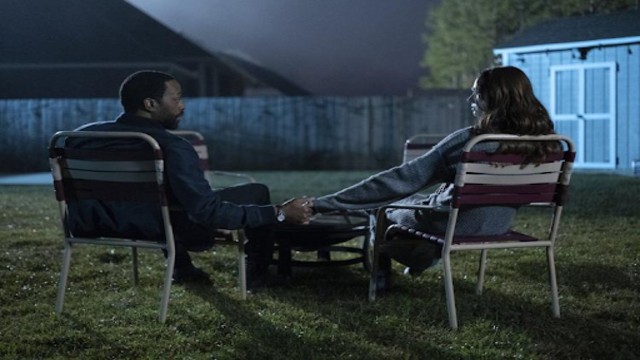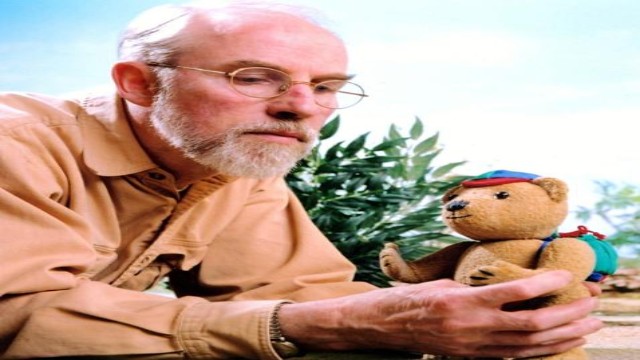
Music producer Quincy Jones poses for a portrait to promote his documentary "Quincy" during the Toronto Film Festival on Sept. 7, 2018, in Toronto. (Photo by Chris Pizzello/Invision/AP, File)
Quincy Jones, the legendary music producer and composer known for his extensive career that included producing Michael Jackson's iconic "Thriller" album and collaborating with an array of artists from Frank Sinatra to Ray Charles, has passed away at the age of 91. His publicist, Arnold Robinson, confirmed that Jones died peacefully at his home in Bel Air, Los Angeles, on Sunday night, surrounded by his family.
In a heartfelt statement, Jones' family expressed their sorrow and celebrated his remarkable life, saying, “Tonight, with full but broken hearts, we must share the news of our father and brother Quincy Jones’ passing... there will never be another like him.”
Jones' journey began in the South Side of Chicago, where he faced the challenges of growing up in a tough environment. He rose to prominence as one of the first Black executives in Hollywood, crafting a musical legacy that resonates through American culture. Over the years, it became rare to find a music lover without a record featuring his name, as he mingled with leaders in entertainment and beyond.
Recording star Stevie Wonder, left, and Quincy Jones participate in a coast-to-coast recording session, linked to a studio in New York, to record an anti-drug song, Wednesday, March 5, 1987 in Los Angeles. (AP Photo/Sunny Bak, File)
His career was a tapestry of collaborations with some of the biggest names in the industry. He toured with jazz legends like Count Basie and arranged songs for stars like Ella Fitzgerald and Sinatra. His work included the famous soundtracks for the television mini-series "Roots" and the film "In the Heat of the Night." Jones also played a pivotal role in organizing President Bill Clinton's inaugural celebration and in the creation of “We Are the World,” the historic charity single aimed at alleviating famine in Africa.
Lionel Richie, a collaborator on “We Are the World,” praised Jones as “the master orchestrator.” Throughout his career, which started in the era of vinyl records, Jones achieved monumental success with Jackson's albums: “Off the Wall,” “Thriller,” and “Bad.” His innovative production style helped elevate Jackson’s career from child star to global superstar, blending genres such as disco, funk, rock, pop, and R&B. Notably, Jones was behind memorable elements of "Thriller," including Eddie Van Halen’s guitar solo on “Beat It” and Vincent Price’s eerie voiceover on the title track.
“Thriller” alone sold over 20 million copies in 1983 and remains one of the best-selling albums in history. Jones once reflected on the role of a producer, saying that if an album succeeds, the credit should also go to the producer’s skill and vision.
His achievements earned him numerous accolades, including 28 Grammy Awards, two honorary Academy Awards, and an Emmy for “Roots.” He received France’s Legion d’Honneur, a tribute from the Kennedy Center, and was the subject of a documentary titled “Listen Up: The Lives of Quincy Jones.”
Born in Chicago in 1933, Jones' early life was shaped by his mother’s struggles with mental health, leading him to find solace in music. As a young boy, he discovered a passion for the piano that would steer him away from a troubled youth marked by gang activity. His talent earned him a scholarship to Berklee College of Music, but he left to tour with Lionel Hampton's band, starting a prolific career as a composer and producer.
Jones faced numerous challenges, including racial barriers as he became the first Black musical director for the Academy Awards in 1971. His first film, “The Color Purple,” garnered 11 Oscar nominations but, disappointingly, no wins. He later founded Quincy Jones Entertainment, which included the influential magazine Vibe.
Jones was versatile in all genres, having worked with artists ranging from jazz icons to pop and R&B stars. He produced "We Are the World," featuring a star-studded lineup that included Michael Jackson, Bob Dylan, and Bruce Springsteen. He also played a significant role in launching the careers of stars like Will Smith through his production of “The Fresh Prince of Bel-Air.”
Despite the successes, Jones encountered difficulties, including a near-fatal brain aneurysm in 1974 and deep depression after “The Color Purple” was overlooked by the Oscars. He was married three times and had seven children with five mothers. In his later years, Jones became a committed philanthropist, focusing on issues such as HIV/AIDS, education, and poverty relief. He founded the Quincy Jones Listen Up! Foundation to connect young people with music and culture.
Jones is survived by his daughter Rashida Jones, along with five other daughters and one son, as well as his brother and sisters. His legacy as a musical pioneer and cultural icon endures, leaving an indelible mark on the world of music and beyond.















